Lifestyle
Unseen struggles of ex-convicts chained to crime by stigma
Published
4 months agoon
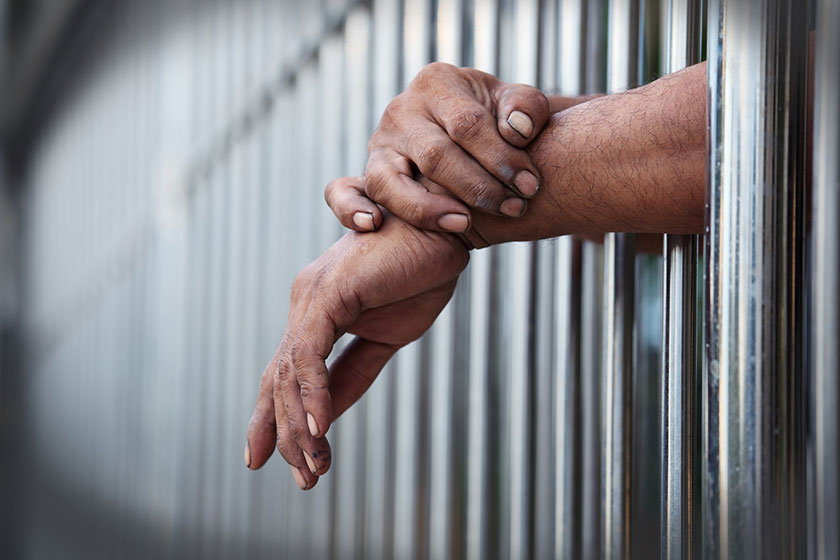
For countless Nigerians who have served time behind bars, stepping out of prison is far from the freedom it promises, as a harsher sentence is silently handed down by society.
Stripped of opportunities, denied jobs, and branded by neighbours who whisper their past like a curse, ex-convicts often discover that the real punishment lies outside the walls they left behind, writes GODFREY GEORGE
Toba’s life changed forever in 2021, the day he was accused of theft. Until then, he had worked diligently as a recorder and storekeeper at a building materials factory. The job, though modest, gave him a sense of dignity and pride.
At about 33, he was a lanky man with a calm demeanour, trusted enough to oversee and safeguard goods worth millions. But trust, once broken, is rarely restored.
That fateful day, he recalled, a group of men arrived in a truck, presenting an invoice with his boss’s signature and the company’s logo. Everything about the document appeared authentic. The men were insistent, claiming they had travelled from afar and needed their goods loaded without delay.
Toba tried desperately to reach his boss, dialling his number repeatedly, but his calls went unanswered. In desperation, he posted a photo of the invoice on the company’s WhatsApp group, hoping for swift guidance. Silence.
Meanwhile, the truck driver revved impatiently, the men’s agitation rising with each passing minute. Torn between caution and the pressure before him, Toba made a choice that would alter the course of his life: he authorised the release of goods valued at over N2.4m.
Barely two hours later, his phone buzzed. On the line was a senior staff member from the Lagos headquarters, his voice sharp with urgency: “Don’t release the goods! The invoice is fake; it didn’t come from the head office.”
The factory management insisted that Toba had been negligent. He, however, maintained that he had been deceived. The police were called, and before long, he was in handcuffs, clamped in detention, and eventually standing before a judge.
What followed was a draining legal tussle, a bitter back-and-forth between lawyers and accusers, that dragged on until he was finally sentenced to prison.
“It was not just prison,” his youngest brother (name withheld) recalled quietly. “It was the beginning of his end.”
Toba spent years behind bars, watching the world outside move on without him. By the time he secured his release in 2024 through a successful appeal, his family expected a fresh start, a long-awaited relief.
Instead, freedom brought only chaos. Barely four months later, he was back in police custody in Delta State, where the family had since relocated.
This time, he faced accusations of disrupting public peace, theft, and, more gravely, the sexual assault of a minor. Though he was released on bail and the charges were later dropped, the shadows of suspicion clung to him.
That was only the beginning. Not long after, Toba was rearrested yet again, this time for physically assaulting the boyfriend of a young corps member he had unsuccessfully tried to woo. She had rejected his advances, telling him she was already in a relationship.
Enraged, Toba reportedly hunted the young man down and beat him mercilessly. The victim, one Isaac, reported the matter to the police, and Toba’s family was summoned.
After much persuasion, Isaac agreed to withdraw the complaint, but the damage to Toba’s reputation deepened.
His youngest brother, just 21, spoke in despair:
“It’s like prison made him worse. That place is supposed to be a correctional centre, but my brother… the man who once loved God, who was peaceful, who never smoked… now he smokes marijuana, fights at every provocation, and lives on the streets, causing mayhem. He is no longer the same.”
Home, too, had become a place of grief. Their mother died only months before Toba’s release, while their father, once a strong and resilient farmer, is now bent with arthritis and rheumatism.
From his frail frame, the old man spoke with a mixture of pain and bitterness about his first son.
“We asked him to go to the National Open University, but he refused. Several people like him have gone there and built a life for themselves.
“We paid for him to learn a trade, but look where we are. He brings us shame. We have arranged with my cousin in the Benin Republic, a retired military officer, to take him away this September. That is the best thing to do.”
But even that plan may prove elusive. Since his release, Toba has become a ghost. He owns no phone, has no fixed address, and vanishes for weeks, only to resurface in police custody or in connection with another troubling allegation.
“People said he was attacked on a farm where he tried to steal crops. This was after a Pentecostal church accused him of stealing some plastic chairs and their speakers, which he rented out for an event,” his younger brother added. “But no one really knows. I will let you know when I find him, so you can ask him what exactly he wants to do with his life.”
As of press time, Toba remained missing. Although a senior police officer in the state said there were plans to join the family in the search, no official report had been filed with the police to track his whereabouts.
“He is our regular customer. I know he will return. It’s not in doubt,” the officer told our correspondent on Thursday afternoon.
Rearrested after five days of freedom
On August 30, 2025, a Toyota Sienna rolled along the Asaba–Ibusa Road in Delta State. To the ordinary eye, it was just another vehicle blending into the evening traffic. But to the Eagle-Net Special Squad of the Delta State Police Command, something felt off. They waved the car to a stop. Beneath the driver’s seat, they found 75 rounds of live cartridges carefully concealed.
The driver, 58-year-old Albert Opene of Ashaka, could offer no convincing explanation. He was immediately arrested.
That same week, a distress call from Asaba brought police and members of the Nigeria Hunters Security Services racing after two men who had snatched a motorcycle. When the suspects were finally pinned down, one of them turned out to be a familiar face: 27-year-old Precious Okoro.
Precious had barely tasted freedom. Only weeks earlier, on August 6, he walked out of the Ogwashi-Uku Correctional Facility after completing a two-year jail term for, ironically, the theft of a motorcycle. By August 11, barely five days later, he had allegedly gone back to the same crime.
“The said suspect is an ex-convict…he went back to steal another motorcycle just five days after returning from prison,” the command noted in its report.
Okoro’s accomplice, an 18-year-old identified as Buhari Deyegu, was also arrested. The stolen bike was recovered.
“It is the same motorcycle issue, sir,” he said, his voice subdued. He claimed that another man, identified only as Mohammed, pressured him into stealing again.
“This one na where them park am I go tif am,” Precious confessed, recalling how he attempted to snatch the bike. “As I tif am, disconnect am, where I dey try move, na em one boy catch me. My slippers fall, as I say, make I go carry my slippers, the security man saw me, tell me say make I wait. I no fit lie for him. I tell am say na tif I go tif am for person house.”
His story laid bare the tragic reality of ex-convicts in Nigeria: men released from prison with no support structure, no rehabilitation, and no means of survival, almost destined to fall back into the same crimes that put them behind bars in the first place.
The Delta State Police Command would later announce another breakthrough: the dismantling of a five-man robbery syndicate operating in Ughelli and beyond. At the centre of it was a man known as “Big Man”, real name Samson Ugbe.
Ugbe and his gang had allegedly terrorised communities, stripping victims of electronics, cars, and even looting a warehouse where more than 180 bags of rice vanished overnight. Police traced some of the stolen items, including laptops, a PlayStation 4 console, and a 65-inch television, to his hideout.
His girlfriend and another accomplice, arrested first, gave him up. Soon, Ugbe and his men, Emmanuel Edam, Frank Aminu, Sampson Irorowo, and Yahaya Bashir, were rounded up. Two stolen cars, taken from Ozoro and Orerokpe, were recovered.
It was not the first time the gang’s name had surfaced. Police had earlier linked them to an armed attack on Niger Delta University, Oghara, in 2024.
“Interrogation of the suspect led to the arrest of the gang leader, Samson Ugbe, AKA ‘Big Man’, who has been on the command’s wanted list,” the statement read.
Two ex-convicts jailed in Ibadan
When the Ilesanmi brothers, Amos Remilekun and Olanrewaju Samuel, walked out of court in October 2024 after serving three months of community service for internet fraud, it might have seemed like a second chance.
They were young, first-time offenders, convicted of impersonation and obtaining money by false pretence. The punishment was light, more corrective than punitive, a warning shot rather than a full sentence.
But less than a year later, the brothers were back in the dock. This time, alongside another man, Ugbeh Emmanuel Ukali, they faced Justice Uche Agomoh of the Federal High Court in Ibadan. Their offence? Spraying and trampling on naira notes at a nightclub in Akure, Ondo State.
The Economic and Financial Crimes Commission told the court the trio desecrated N391,400 worth of N500 and N200 notes on June 6, 2024, violating Section 21 of the Central Bank Act. All three pleaded guilty.
Their lawyer pleaded for leniency, insisting they had shown remorse. But the court was unmoved. Justice Agomoh sentenced them to six months’ imprisonment each, without the option of a fine, and ordered that the sprayed money be forfeited to the Federal Government.
For the Ilesanmi brothers, this was no longer a story of youthful indiscretion. Having been spared prison once, they still found themselves trapped in the judicial system again, proof of how easily offenders in Nigeria drift in and out of crime, with correctional measures doing little to change behaviour.
Their journey back behind bars underlines a sobering reality: when the structures meant to rehabilitate convicts falter, relapse becomes almost inevitable, and the line between petty offences and hardened criminality begins to blur.
State pardoned ex-convict re-arrested
On Christmas Eve of 2024, Osun State Governor, Ademola Adeleke, extended a gesture of mercy. Among the beneficiaries was 33-year-old Sunday Omisakin, convicted of minor offences and remanded at the Ilesa Correctional Centre. The pardon was meant to offer him a clean slate, a symbolic act of redemption in the spirit of the festive season.
But barely days later, Omisakin’s name resurfaced, though not in the way anyone hoped. On January 3, 2025, he allegedly broke into a home in the Iludun area of Osogbo and stole a plasma television worth N600,000.
The charge sheet was straightforward: Count I accused him of breaking; Count II of outright theft, both under Sections 411 and 383 of the Osun State Criminal Code.
When he appeared before Magistrate A. Adeyeba, the prosecution strongly opposed his bail application, and the magistrate agreed. Omisakin was remanded once again at the Ilesa Correctional Centre, just days after leaving it.
Omisakin’s case casts a harsh light on the paradox of state pardons in Nigeria. Intended as tools of compassion and reintegration, they often release offenders into the same unforgiving realities that drove them to crime in the first place: unemployment, stigma, and a lack of social support. For many, like Omisakin, the pull of crime remains stronger than the promise of reform.
His swift return to criminal activity raises uncomfortable questions about the effectiveness of Nigeria’s correctional and pardon systems. Mercy, in this instance, did not bring redemption. It merely reset the clock on another cycle of arrest, arraignment, and incarceration.
For 21-year-old Simeon Mathew, freedom was short-lived. On January 1, 2024, he walked out of prison in Ondo State after completing a sentence for drug offences and robbery. By January 5, he was in handcuffs again.
Operatives of the Amotekun Corps, the Ondo State Security Network Agency, arrested Mathew for drug peddling and theft, the very crimes that had landed him in prison in the first place.
“The ex-convict, Simon Matthew, claimed to be a drug dealer and had been convicted for drug and robbery activities, and that was exactly what he did again,” Amotekun Commander, Adetunji Adeleye, told journalists while parading Mathew and 28 other suspects in Akure.
In a single week, Adeleye’s men dismantled four robbery gangs, seized locally made firearms, and apprehended cattle herders violating the state’s anti-open grazing law. Yet it was Mathew’s re-arrest, just days after his release, that cast the starkest shadow over the event.
His case underscored how Nigeria’s correctional system often churns out young men who leave prison not rehabilitated, but hardened, with nowhere to turn but back to crime.

Stigma and the short road back
For many men and women leaving Nigeria’s prisons, the hardest sentence begins when the gates open. Freedom comes with a shadow: rejection, suspicion, and stigma that weigh more heavily than the iron bars ever did. With families strained, communities unforgiving, and jobs out of reach, ex-convicts often find themselves pushed back into the very cycles of crime they had hoped to escape.
A 2023 paper by researcher, Kioba Kio Anabraba, in the International Journal of Innovative Legal & Political Studies, noted that the label of “ex-convict” carries “lifelong implications such as social stigma or reduction of opportunities in various aspects of society.”
The study stressed that in Nigeria, civil disabilities further compound these challenges: ex-convicts are barred from contesting certain political positions and often denied sensitive jobs or occupational licences. “What we have on ground,” Anabraba observed, “is a situation whereby the inmates are not only separated from their freedom, but their human dignity, which is needed to aid their rehabilitation and social reintegration.”
Citing scholars such as Pansag and colleagues, Anabraba notes that while an ex-convict is technically “a person liberated from incarceration,” the reality is far more complex. Freed individuals often struggle to re-enter society, hindered by internal disorientation and external prejudice. Without proper transition support, the difficulties extend to families and communities.
In Nigeria, the consequences are particularly stark. Under Section 107 of the 1999 Constitution (as amended), ex-convicts are barred from contesting certain political offices. As Iwarimie-Jaja observes, they also fall under “civil disability laws,” which restrict access to sensitive jobs and occupational licences. Obiora adds that prison conditions, overcrowding, prolonged pre-trial detention, weak skills programmes, torture, and broken family ties further erode chances of rehabilitation.
These systemic failures, Anabraba argues, deprive inmates not just of liberty but of the dignity and development needed for reintegration. The stripping away of civil rights deepens the problem. In many jurisdictions, felony convictions result in loss of voting rights, disqualification from public office, and exclusion from jury service. Nigerian courts have stressed that committal proceedings must strictly follow due process, as in Dikibo v. Ibuluya. Yet once a conviction stands, even a brief prison term leaves an indelible mark: the stigma of “ex-convict.”
International standards provide some counterbalance. Human rights law, with its guarantees of equality, privacy and protection from abuse, could shield ex-offenders from discrimination. Anabraba cites McVeigh v. United Kingdom (1981) under the European Convention on Human Rights as an early case influencing how criminal records are handled. The article warns, however, that privacy is often threatened twice: at data collection (fingerprints, records) and at dissemination, where state or private actors may exploit such information. More troubling still are cases where victims of human rights violations are criminalised—when state or non-state abuses lead to records, or when prosecutions rely on laws that contradict international human rights treaties.
NCoS speaks to stigma
In a report by The PUNCH, the Nigerian Correctional Service admitted that stigma and rejection remain major drivers of recidivism. Officials explained that many ex-prisoners are shut out by their communities, leaving them with little choice but to reoffend for survival. Advocacy groups like Prison Rehabilitation and Welfare Action echo the same warning: without acceptance, correctional programmes collapse once inmates step outside the prison gates.
Journalistic investigations also show how weaknesses inside prisons worsen outcomes. Overcrowding, lack of skills training, torture, and long stretches of awaiting trial rob inmates of both dignity and work readiness. By the time freedom comes, they are released into a society already primed to reject them. As The Guardian Nigeria observed, “the Nigerian correctional system prepares inmates for survival in prison, not life outside it.”
The stigma is both pervasive and measurable.
A 2020 mixed-method study in the African Journal of Criminology and Justice Studies found that reluctance to rent homes to or employ ex-prisoners was one of the strongest predictors of recidivism in Nigeria.
“Stigmatisation not only isolates ex-offenders socially,” the study concluded, “but practically denies them the legal means of survival.”
Community rejection, therefore, is not just cultural disdain but an engine of criminal relapse. In Edo State, a former inmate told The Cable: “When nobody wants to hire you, when even your family doesn’t trust you, you go back to what you know. Crime becomes the only place you’re not judged.”
International research mirrors this reality. Comparative studies across sub-Saharan Africa and Europe confirm that discrimination in employment, housing, and civic participation sharply increases the risk of reoffending. The United Nations Office on Drugs and Crime has emphasised that reintegration requires far more than policing: it depends on robust correctional education, after-care support, and community programmes that reduce stigma.
In Nigeria, reformers have echoed these calls. Scholars like Anabraba advocate restorative-justice models to rebuild trust between offenders and their communities, while organisations such as PRAWA demand structured post-release monitoring and reintegration support. UNODC-backed pilot projects show that when traditional leaders and local institutions actively welcome ex-prisoners back, recidivism rates drop significantly.
Yet Nigerian society still equates punishment with permanent exclusion, especially in the workplace.
97 out of 115 employers say ‘No’ to hiring ex-convicts
When 115 Nigerian founders, Human Resources professionals, and recruiters were asked if they would hire an ex-convict, 97 respondents, 84 per cent, flatly refused. The shadow of prison followed regardless of the offence or sentence.
Only six employers (five per cent) said they might be open to hiring an ex-convict, but only if the candidate disclosed their prison record upfront, a requirement that risks becoming another tool of exclusion. Twelve others (11 per cent) were slightly more flexible, willing to hire ex-convicts provided the crime did not involve sexual offences, kidnapping, or murder.
Taken together, the data paint a grim picture: the Nigerian labour market is overwhelmingly hostile to anyone with a prison record. Where there are cracks of openness, they are bound by caveats and suspicion, leaving most ex-convicts with few prospects for rebuilding their lives. Without meaningful opportunities, experts warn, many will be forced back into the same cycle of crime and incarceration the justice system is meant to break.
Civil disabilities add another layer of exclusion. Licensing boards routinely bar ex-convicts from regulated professions, erecting a formal wall of restriction. Coupled with informal stigma, the result is a double barrier to reintegration.
Experts argue that if Nigeria is serious about breaking the cycle of reoffending, stigma must be treated as a public issue, not a private burden. This means legal reforms to limit lifelong civil disabilities, investment in prison education and job-placement programmes, and community campaigns that normalise acceptance of those who have served their time. “Rehabilitation is meaningless if society refuses to forgive,” PRAWA insists.
There are, however, small glimmers of progress. In Lagos, a few NGOs have begun pairing ex-inmates with small businesses willing to offer second chances. Early results point to lower reoffending rates among participants. Internationally, countries that prioritise post-release care, such as Norway, record recidivism levels far below Nigeria’s.
Yet for many, the harsher sentence begins outside prison. As long as stigma denies dignity and opportunity, the path of least resistance often remains the same road that first led them behind bars.
Making Nigerian prisons reformative
For decades, Nigeria’s correctional system has been defined by overcrowding, underfunding, and a punitive philosophy that leaves inmates more entangled in crime than prepared for reintegration. Scholars, advocacy groups, and policy institutes have long called for a fundamental shift towards rehabilitation.
A 2022 UNODC report emphasises that reform must start with recognising inmates as individuals capable of change. It notes that rehabilitation-centred prisons significantly reduce recidivism, stressing that “education, skills training, and psychosocial support are the cornerstones of sustainable reintegration.”
Research elsewhere supports this. The U.S. National Institute of Justice, often cited in correctional studies, found that structured prison education reduces the likelihood of reoffending by up to 43 per cent. “Every dollar invested in prison education saves taxpayers four to five dollars in reincarceration costs,” the NIJ reported, a principle that Nigerian advocates believe applies locally.
PRAWA’s Executive Director, Dr Uju Agomoh, has repeatedly called for a paradigm shift. “Prisons should not be crime schools,” she explained in an interview. “The focus must be on preparing inmates for life after prison through counselling, vocational training, and family reintegration support.” PRAWA’s studies show that ex-inmates with vocational training are far less likely to relapse into crime than those simply released after serving time.
The CLEEN Foundation echoes this in a 2021 policy brief, stressing that aftercare is as critical as in-prison reform. It recommends halfway houses, community mentorship, and micro-credit schemes to help ex-convicts rebuild their lives. Without such support, the brief warned, “the cycle of stigma and exclusion almost guarantees reoffending.”
International scholarship reinforces these arguments. A 2018 article in the International Journal of Offender Therapy and Comparative Criminology highlights the success of restorative justice programmes across Africa. By bringing offenders and victims into dialogue, such initiatives not only reduce repeat offending but also rebuild communal trust. “Restorative justice works because it treats crime as harm to relationships, not just a violation of law,” the authors note.
The economic case is equally compelling. The Brookings Institution, in one of its criminal justice reform papers, stresses that rehabilitation-focused correctional systems are cost-effective in the long run. “Reoffending is not only a security risk; it is an economic drain. Breaking this cycle requires upfront investment in prison education and post-release support,” it argues.
The consensus among experts is clear: if Nigeria hopes to break the cycle of crime, its prisons cannot remain warehouses of human misery. They must evolve into centres of reformation, where inmates gain employable skills, receive mental health support, and are gradually reintroduced into society.
As PRAWA’s Agomoh bluntly puts it: “Do we want people coming out of prison better, or bitter?”
punch.ng
FOLLOW US ON:
You may like
Lifestyle
PHOTOS: Meet Prince Abimbola Onabanjo Of Ijebu Land(the New Awujale Of Ijebu Land Elect)
Published
2 days agoon
January 9, 2026
I have heard that one of the strong ọmọ ọba who may likely clinch the highly exalted stool of the next Awujale of Ijebu Land, according to some reports, is Prince Abimbola Onabanjo.
Prince Abimbola Onabanjo hails from the royal family of Fusengbuwa in Ijebu-Ode. He is a 2007 graduate of Banking and Finance from Lagos State University (LASU) and has undergone several Graduate Business Executive trainings at prestigious institutions, including Harvard Business School, Columbia Business School, and The Wharton School, University of Pennsylvania.
Popularly known as Prince Abimbola among friends in Ijebu and Lagos, he is a young businessman with close to 20 years of experience. He is the Chief Executive Officer (CEO) of Kleensteps Holdings, Extol Securities, and KMF Oils and Gas Limited.
Beyond his business accomplishments, he is also a philanthropist who has contributed immensely to several charitable projects across Ijebu Land in recent years. Few years ago, he reportedly committed 25m naira to 25 schools across Ijebu Ode as part of his vision for long term development of the land.
The young Prince had also in the past support the rehabilitation of road projects in Ijebu including the Balogun Court, Ojusgagbola Avenue, Abusalawu Street, and sections of Osipitan road. And there are many community projects like this, done from time to time.
Well, as the selection and ascension process is currently ongoing, I pray that the family heads, in choosing among the eligible princes, will do the needful.
A few weeks ago, I wrote about another prince, Dr. Adekunle Hassan, a 75-year-old ophthalmologist.
Many reactions suggested that people would prefer the next Awujale to be young rather than elderly. Whatever the reasons may be, I hope this charming Prince Abimbola satisfies that wish 😊.
My foremost concern is fairness in the process and that only the legitimate and rightful ruling house as recognised in the Gazette should be allowed to produce the next king, and not ganusi from any corner. This is how we properly protect our heritage for posterity.
As a people, we must learn to wait for our turn.
I also hope that whoever emerges as the next Awujale will be blessed with wisdom, knowledge, and deep understanding of the sacred role of a traditional ruler in Yorubaland, as one who will be seen as a father to all, without prejudice to social class, religion, or age.
And one who will rule with wisdom and peace, and bring meaningful development to the land through the support of sons and daughters of Ijebu, as well as through strong networks in society.
May the best prince emerge.
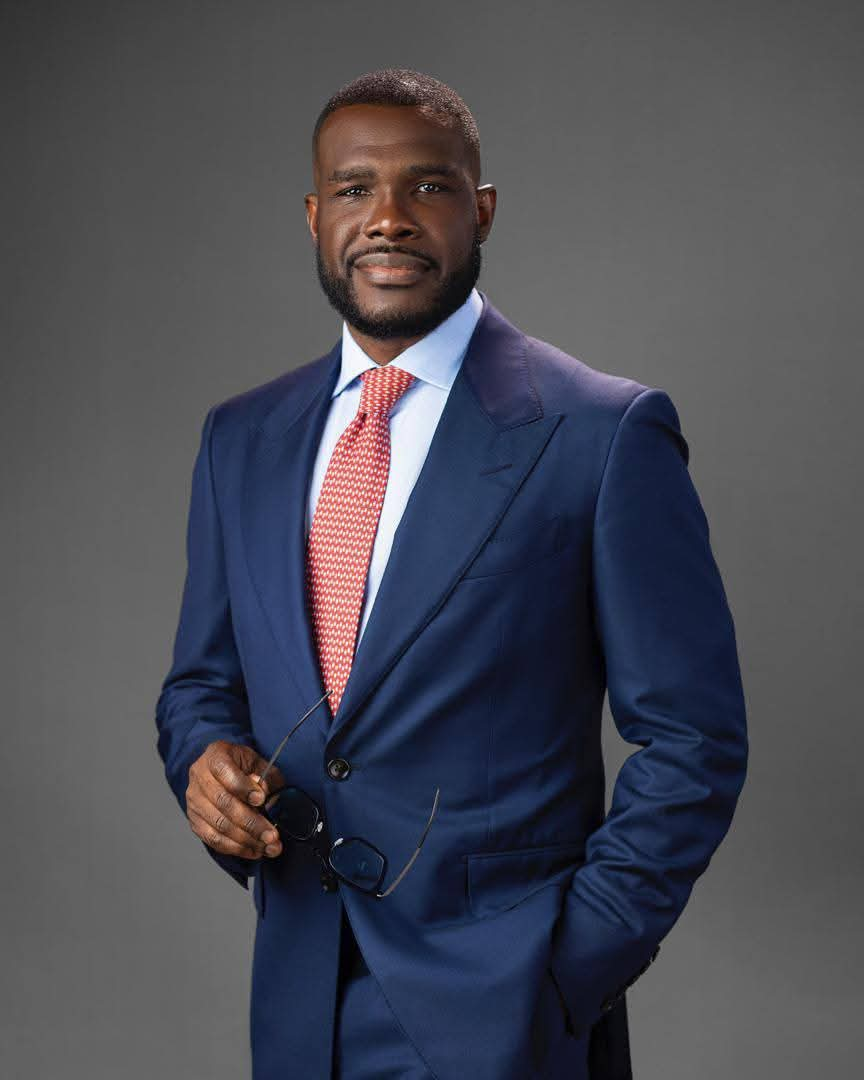

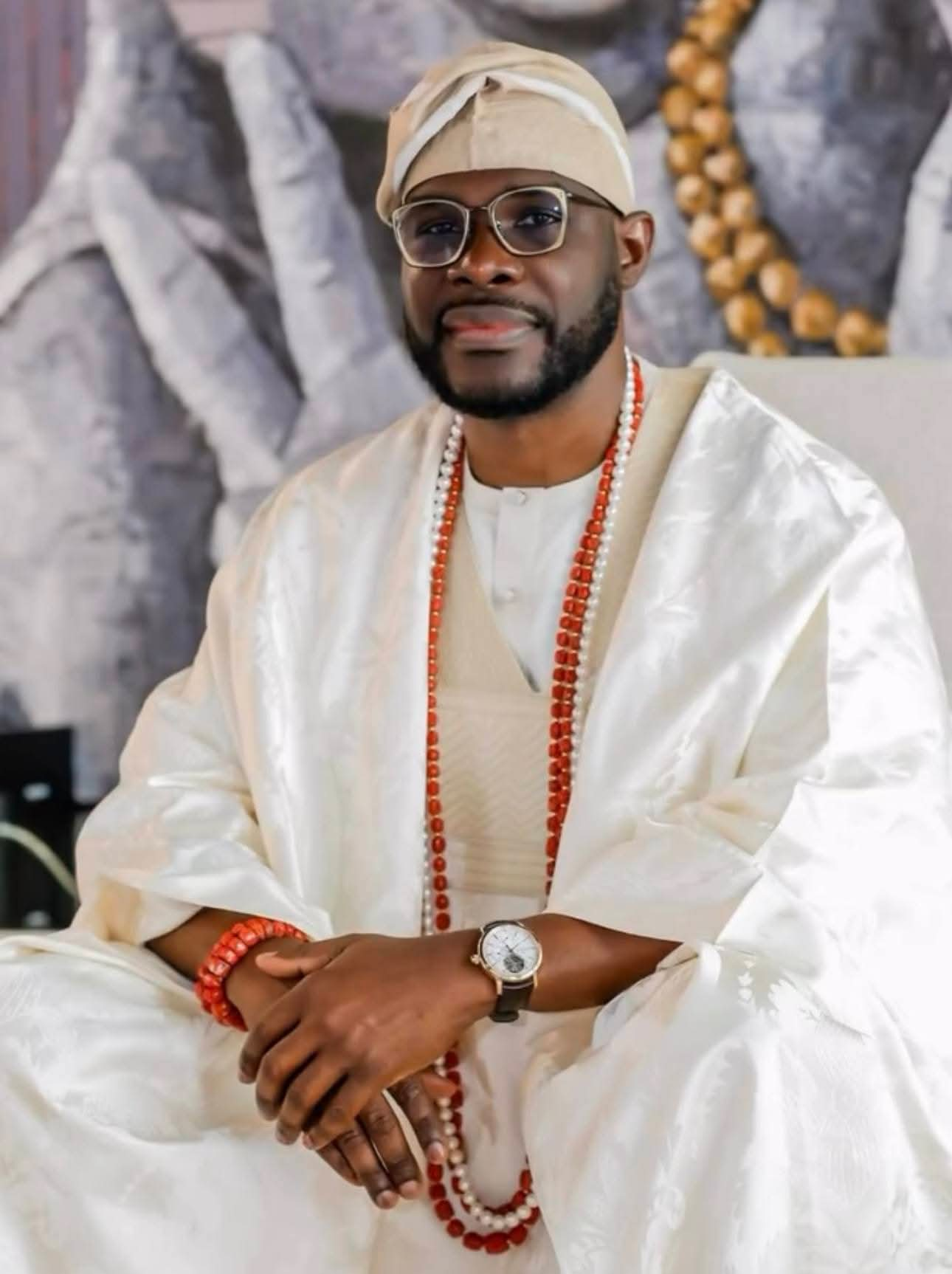

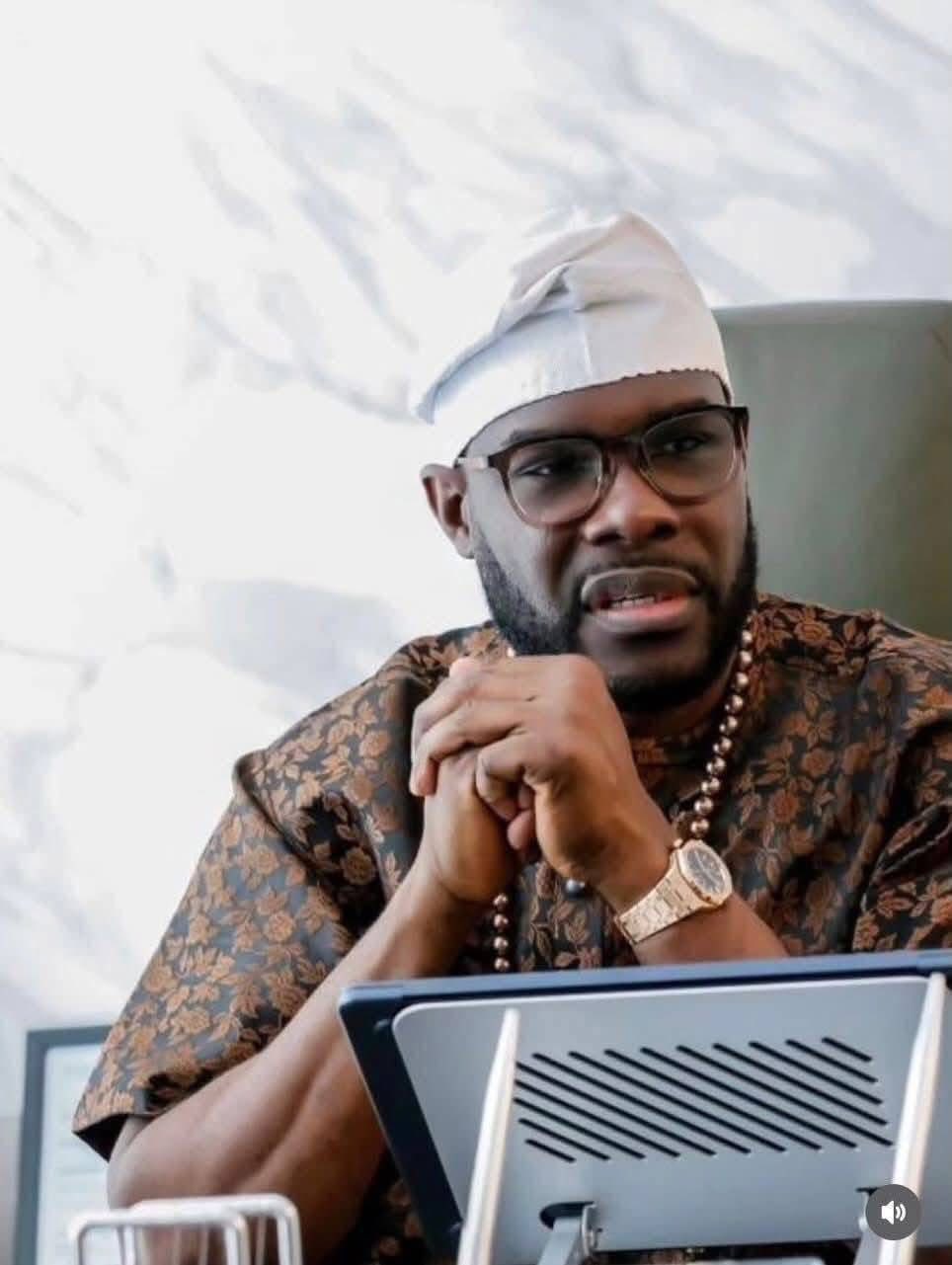
FOLLOW US ON:
Lifestyle
PHOTOS: Nollywood Actress Allwell Ademola was finally la!d to rest in Lagos
Published
2 days agoon
January 9, 2026
Nollywood actress and film producer Allwell Ademola was laid to rest on Friday at Atan Cemetery, Yaba, Lagos State.
It was reported that the actress died on December 27, 2025, at the age of 49.
Colleagues from the film industry, including Afeez Abiodun, Rotimi Salami, Kunle Afod, and Abiola Adebayo, among others, attended the burial to pay their last respects to the actress, who was widely known for her role as “Mama Kate” in the 2018 film “Ile Wa.”
In viral videos seen by this newspaper, the actors who attended the final rites were visibly emotional, breaking down in tears as they poured sand on Ms Ademola’s coffin, which had already been lowered into the grave.
During a brief sermon at the cemetery, the pastor who officiated the burial urged attendees to reflect on their lives while they still had the opportunity.
Reminder
He said the burial served as a reminder that everyone would one day face the same end.
He added that the moment should prompt deep reflection on how one’s life journey would conclude, particularly for those harbouring malice or engaging in wrongdoing.
The pastor said, “Then you will discover that nobody has time. The will of God is that this should help us mend our ways before our Maker. He said the righteous will always consider this in their hearts. What are we going to do with this? She has lived her life. She has run the race and has gone to meet her maker, but what we are doing here is for you and me. As for her, she is rejoicing in the bosom of Abraham.
“How will you end your journey? That malice, wickedness, “I will not agree” — who knows what is next? That is the million-dollar question before us today. Because in the next few days, nature has a way of putting forgetfulness in things. But will you remember that one day it will be my turn, just as it is her turn today? What God expects of us when we see things like this is to look up to God and say, ‘Father, help me to make the best of the time that is left.’”
Candlelight procession and service of songs
At the candlelight procession and service of songs, actors gathered to offer special prayers in memory of their late colleague.
The event, which took place on Thursday, was attended by prominent figures in the industry, including Odunlade Adekola, Saheed Balogun, Bolaji Amusan, Iyabo Ojo, Fausat Balogun, Eniola Ajao and Fathia Balogun. Many attendees wore customised white T-shirts bearing Ademola’s portrait as a mark of tribute.
In an emotional moment captured on video, Salami, widely regarded as one of Ms Ademola’s closest friends in the industry, delivered a heartfelt tribute.
Fighting back tears, he asked for forgiveness on behalf of the late actress.
“If there’s anyone Allwell has offended, directly or indirectly, please, forgive her and keep praying for her. I think the only thing we can actually do is find a way, in unity, to keep her legacy. Even if she’s gone, let all that she has done stay with us and be with us.”
Salami also announced that he would offer one day of free work to anyone who approached him for a film project.
Apology from Allwell’s brother
Meanwhile, one of the late actress’s brothers issued an apology to actress Ojo over remarks he had made following his sister’s death.
He offered the apology during the service of songs held in her honour. Previously, a video that went viral showed him criticising some of her colleagues for their public tributes at the time of her passing.
In the video, he said, “All the ‘Rest in Peace’ messages and public displays of love are fake and hypocritical. Where was this love when she was alive? When she produced Eniobanke, none of you promoted it. You all claimed to be friends, yet you never supported her work or career, even though she supported many of you. During the Jagun Jagun production, no one called her or offered her a role.”
“Some of you, the likes of Lateef Adedimeji, Owonikoko, Iyabo Ojo and others, came to our house to shoot movies, yet you never found it worthy to stand by her. If you couldn’t support her while she was alive, don’t perform loyalty now that she is gone.”
However, Ojo, a mother of two, responded publicly to the claims, affirming that she had supported the late actress during her lifetime.
She wrote, “I oversupported your sister when she was alive, when she was building her career as a Producer and director, I featured in her movies countless times for free, and I also supported her financially and emotionally. May her beautiful soul continue to rest in perfect peace,” she said.
While apologising, he said, “Please ma, don’t be offended. I did not mean to abuse you; I was not referring to you at all.”

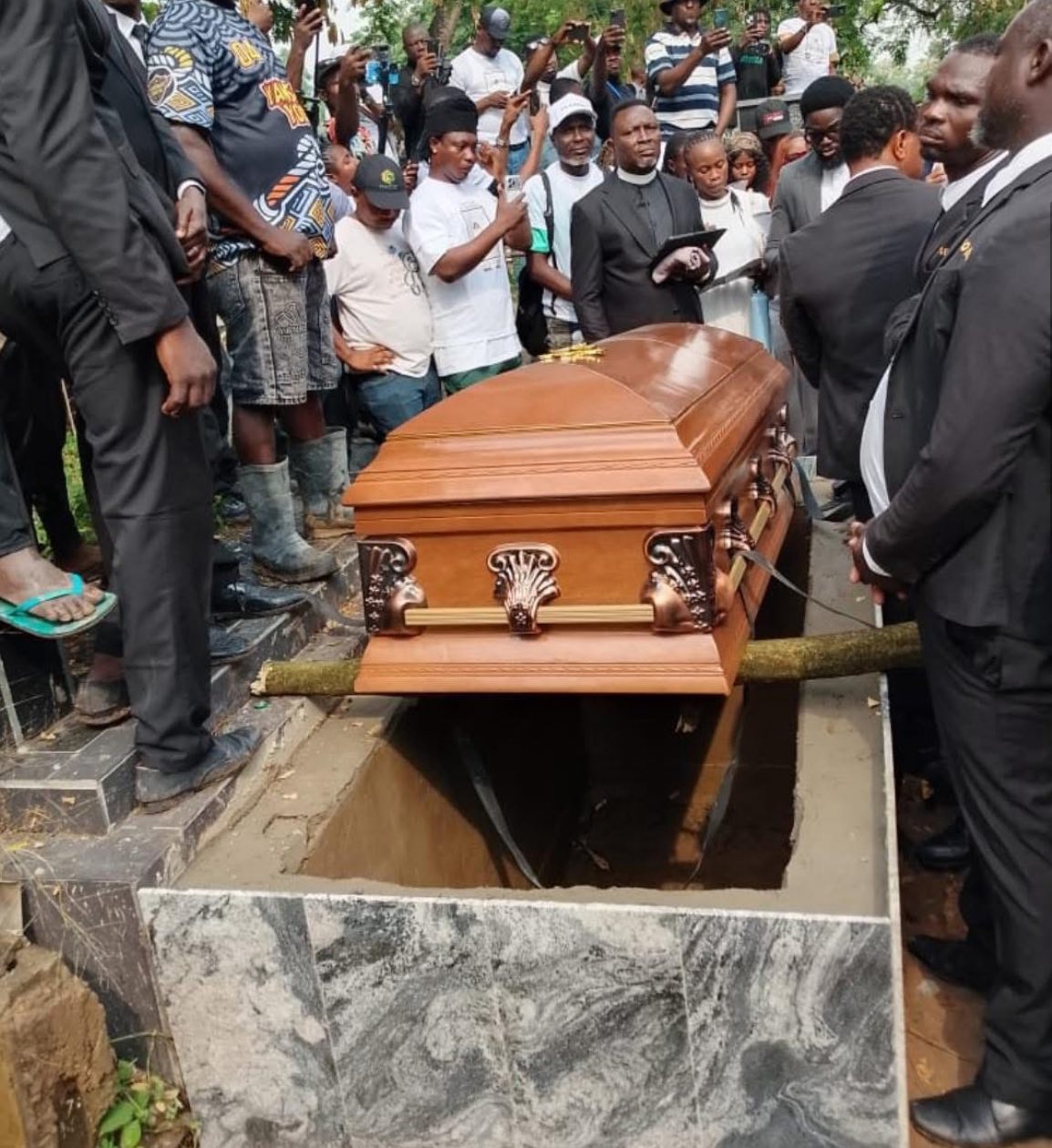
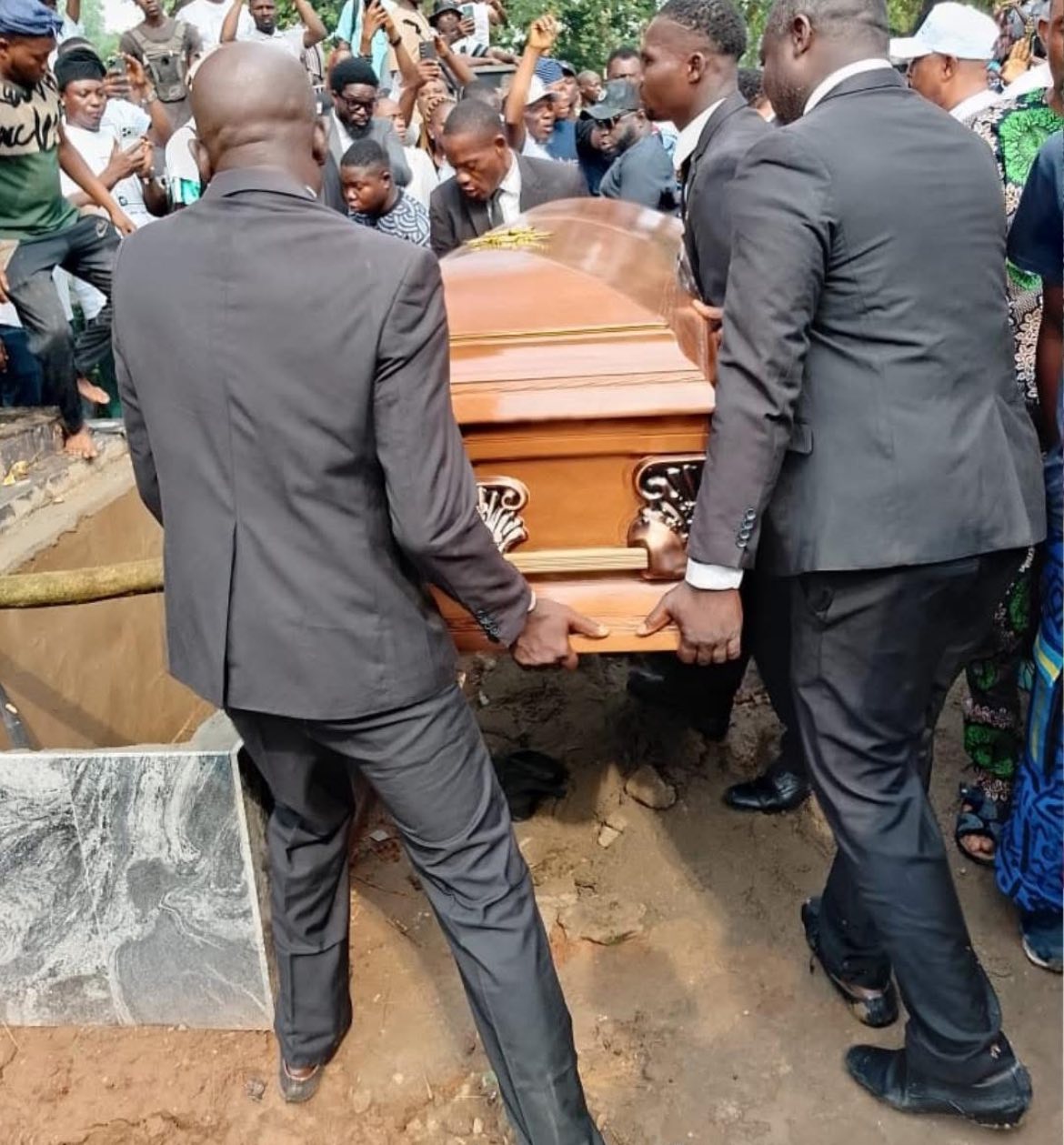
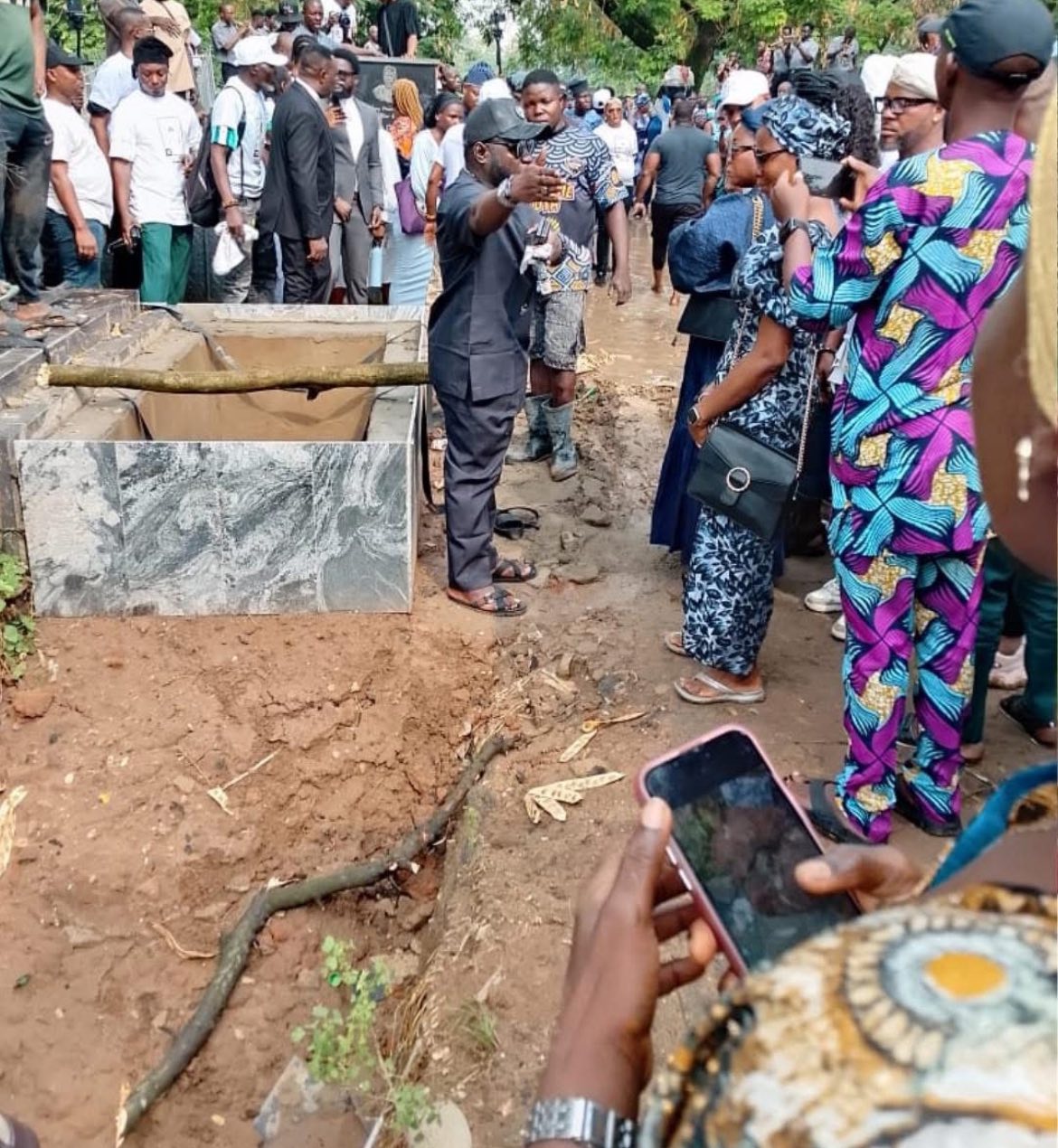

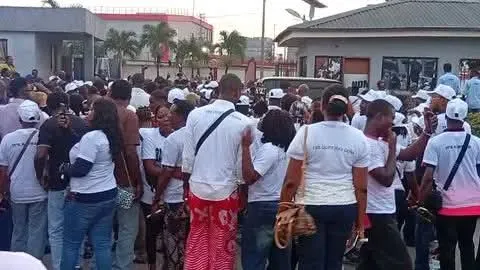


FOLLOW US ON:

One major issue that caught the attention of Nigerian writers, historians, journalists and linguists amongst others in January 2020, was the adoption of 29 Nigerian coinages and words from, especially Yoruba and Hausa languages, into the Oxford English Dictionary. Words and colloquial, such as danfo, okada, buka, k-leg, to eat money, next tomorrow, chop-chop, gist, sef and 20 others were officially accepted for everyday use as part of the English language.
There was widespread ecstasy generally amongst many Nigerians – both the lettered and the unschooled masses were united in their celebration of this recognition, especially coming from our former colonial masters – because the British that gave us a lingua franca, now were accepting our own languages, our own native words to be part of English language, after several of us were caned by British-tutored Nigerian teachers for speaking “vernacular” in primary schools in those days. You will agree with me that the joy is not unfounded. Filipinos perhaps, felt a similar joy in 2015 when 40 Filipino-coined words and slangs were also added to the Oxford English Dictionary.
Is it also not victory at last, even if in part, for Afrocentric scholars and writers who are foremost critics of the prejudiced nexus between language and power? Several of them have argued vehemently and vowed not to italicise coinages and words from their native languages in their critiques and creative writings. Although they have continued to write in the borrowed languages of French, English and Portuguese. This pseudo victory at least reinforces their stance, showcasing fruits from their activism.
This opening digression was inescapable for me from the dreadful topic of this write-up: Why Yoruba language may become extinct! This is because the Oxford English Dictionary’s action finally forced me to sit down and write this essay that has been pleading for my attention for several months now. Anyway, back to the issue. I could have generalised the topic by saying that several Nigerian languages may become extinct if we don’t make purposeful efforts to halt their adulteration, abuse, disuse and sometimes disdain by their native speakers. Yoruba language in this instance is a euphemism for conquered languages of the world, not just Nigerian or African. It represents languages, whose native speakers are the proletariats in the world order. From prehistoric times to modern days, power relations have always defined human relations; language has remained one of the major instruments of conquest. This is one disorder that the world has not been able to re-order and that may remain with humanity for centuries to come.
Now, you may say Yoruba language is not one of the languages listed as critically endangered by the United Nations Educational, Scientific, and Cultural Organisation. Then, it means that you are not getting the point. The viewpoint I am expressing here is that the visible or invincible power of a person or a group of persons over others, determines the norm for all and what is acceptable as public interest, including the language that would be internationally used for socio-political and economic interactions, irrespective of interest of the peripheral groups in their mother tongues or any other issue.
Let’s go memory lane for clarity. Are you aware that the English language is not even native to the English people or the earliest inhabitants of the place known as Britain today? This may shock a number of people except scholars grounded in the history of English language. According to historians, the people of modern day Britain spoke what is known as Celtic language, which itself is a mixture of Indo-European languages. English language as known today to Her Majesty – the Queen, her subjects and ourselves – the emancipated natives of her former colonies, was introduced by “Germanic tribes” said to have invaded Britain sometimes in the 5th century. Although a small populace in the United Kingdom still speak Scottish and Irish languages, which are parts of the Celtic languages, English, the language of the invaders, has remained the flagship of the United Kingdom’s languages. The name England itself has its root from the Germanic tribes.
To further drive home the point that power relations determine accepted language and determine “who gets what, when and how”, as attributed to the political scientist, Harold Lasswell, let me also remind political historians that French was the official language of England for almost 300 years, from mid-11th century to mid-14th century. This was also imposed on England by the invading Normans and French army that defeated the then King Harold II of England, and thereafter forced the people to speak French for official interactions for three centuries.
That Bishop Ajayi Crowther interpreted the English bible into Yoruba language. That J. F. Odunjo’s popular “Iselogunise” Yoruba poem has remained evergreen and known across the globe? That Hubert Ogunde, Moses Olaiya, Idowu Philip, Kola Ogunmola and lot of others promoted Yoruba language through theatre and drama. That even Brazil in faraway South America recognises Yoruba language as one of its official languages. That the Yoruba language has also remained a major language in Nigeria, and it is being used in the Republic du Benin, Togo and even amongst infinitesimal populations of Yoruba people across the globe, may not prevent its extinction!
Recall we are using the Yoruba language as a euphemism for languages not directing world order, and therefore not considered as world power in this discourse. The point is art, literature and public outcries would not save any language from extinction, except its speakers are recognised for their economic power, military prowess, massive scientific innovation, giant strides in Information, Technology and Communication, medical contributions to well-being and wellness of humanity. Such languages may eventually give way.
That is why a German professor, who is very fluent in English language, may come to Nigeria and deliver his speech in German, and except that Nigerians and everyone else follow his/her discourse via the headphone translation devices. And our first class traditional rulers, right on their thrones, would talk to outsiders in English language, rather than also get interpreters to translate their discourse in English, while they speak their native language. That is why akara is known as beans cake amongst non-Yoruba people and not by its Yoruba known name, akara; and pizza is pizza worldwide. That is why our kids would want to learn Spanish, French and in recent times, Mandarin, in addition to English language to increase their access to global opportunities; and be unbothered if they are only able to speak diluted Yoruba language. They may even be less concerned with reading or writing their native language.
The English language itself has survived and continued on its victory lap over the Chinese Mandarin language spoken by 1.3 billion people, because of its continual adoption and adaptation of words and slangs from other languages that are gaining mileages and may compete with it. The adoption of the Nigerian colloquial and words into the English language is therefore not a victory for the Nigerian languages, but the use of linguistic assimilation method by powerful owners of English language to make it remain the language of today, tomorrow and next tomorrow. Records show that the English language has borrowed from about 250 other languages across the globe.
According to UNESCO, over 2,500 languages are vulnerable or already endangered in various degrees, some definitely, others critically. While the Yoruba and a number of other major languages in the underdeveloped countries may not be under serious threat now, their extinction will still come, even if it takes centuries, unless their owners and speakers start making impact in world affairs collectively as a people to the point that they also become dominant stakeholders in the world affairs, vis-à-vis, the world order.
FOLLOW US ON:

US Urges Citizens To Leave Venezuela Warns Armed Militias Have Set Up Roadblocks

‘Leave Social Media, Join Politics’, Ex-Lawmaker Shehu Sani Tells Young Nigerians

2027: ‘Peter Obi Is The Only Life In ADC, Others Are Not Existing’ – Fayose

‘Sleeping Prince’ of Saudi Arabia dies after 20 years in coma

How A Class Of 24 Students Produced 2 Presidents, 4 Governors, 2 Ministers, 4 Emirs, 3 Justices, 4 Ambassadors and Other Influential Leaders

Why Do You Continue To Lie Against Your Motherland? Presidency Calls Out Kemi Badenoch
Trending
-

 Politics22 hours ago
Politics22 hours agoImpeachment: Wike Maintains Silence As Tinubu, APC Leaders Resolve To Save Fubara
-

 News22 hours ago
News22 hours agoResident Doctors Insist On Planned Strike Despite Court Order
-

 News22 hours ago
News22 hours agoUK Threatens To Deport Nigerians Over Illegal Jobs
-

 Business22 hours ago
Business22 hours agoEFCC Begins Probe Of Ex-NMDPRA Boss After Dangote’s Petition
-

 Politics22 hours ago
Politics22 hours ago‘Leave Social Media, Join Politics’, Ex-Lawmaker Shehu Sani Tells Young Nigerians
-

 Politics22 hours ago
Politics22 hours ago2027: ‘Peter Obi Is The Only Life In ADC, Others Are Not Existing’ – Fayose
-

 News10 minutes ago
News10 minutes agoUS Urges Citizens To Leave Venezuela Warns Armed Militias Have Set Up Roadblocks
















